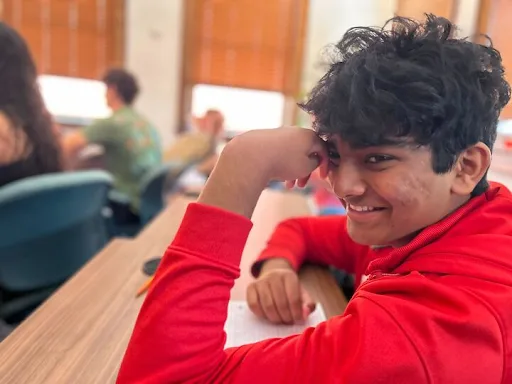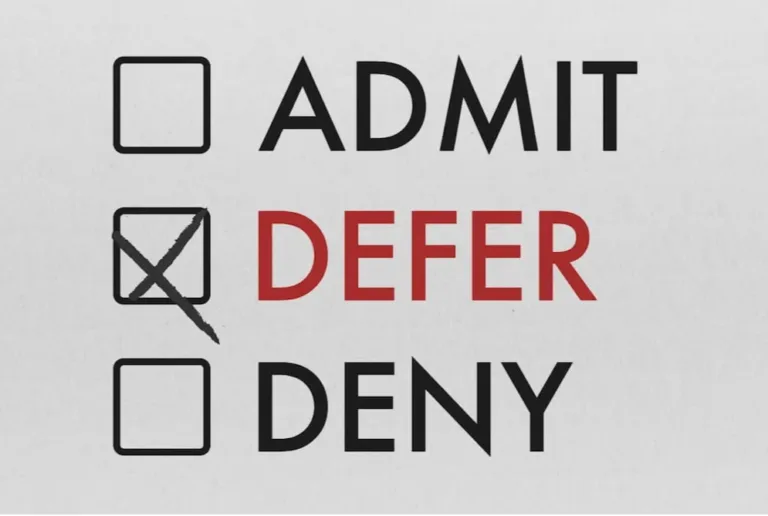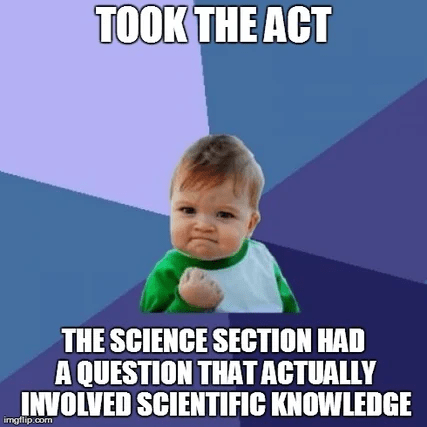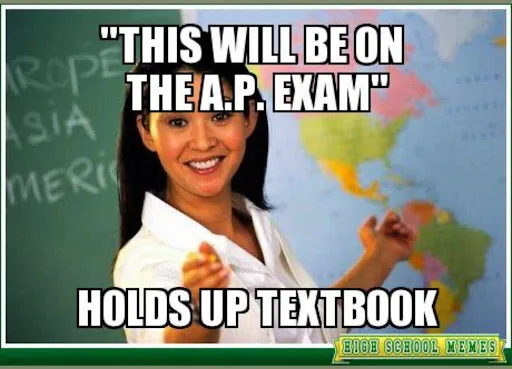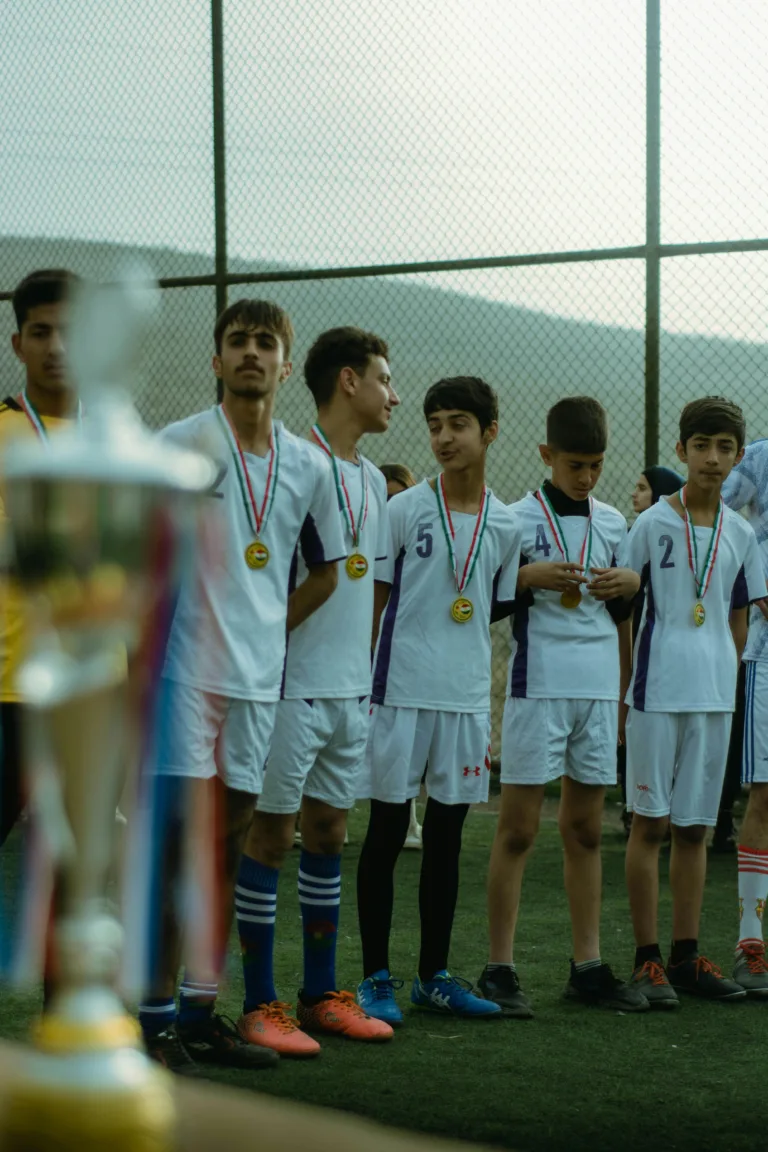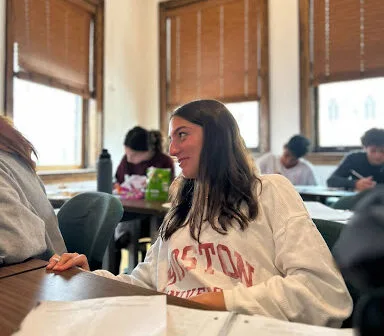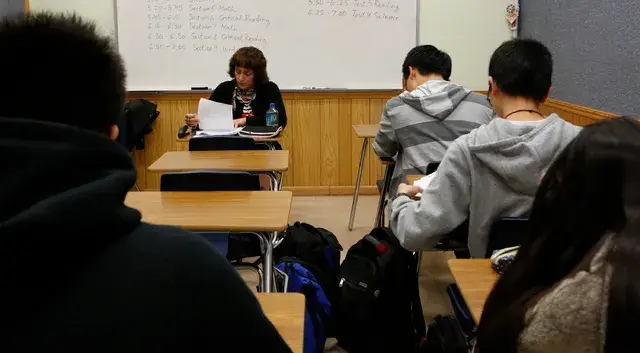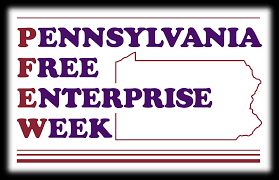
If you are a young entrepreneur, interested in economics and finance, or fascinated by innovation and driving change forward, you may be interested in the Foundation for Free Enterprise Education’s Pennsylvania Free Enterprise Week (PFEW). Read more about the FFEE and its history—the foundation hopes to create leaders that are prepared early and well with skills valuable to a thriving workforce.
PFEW holds four one-week courses during the summer for high school students. The week-long courses offer hands-on lessons and interactive simulations, a speaker’s series featuring current innovators and academics, and connections that prepare students for college-level programs and careers. Applicants should be prepared to impress admissions readers with evidence that they are the next big business leader. Let’s think about how to drive this message home!
What are PFEW’s prompts?
Students should respond to both prompts. There is no specified word count, so we recommend between 500-750 words per essay.
- I would like to participate in PFEW because…
- Describe your scholastic and extracurricular activities and achievements, both past and present.
How to write the supplemental essays for Pennsylvania Free Enterprise Week
How to write PFEW’s Essay 1 + example essay
I would like to participate in PFEW because…
This is a very important essay, because you must make a case for why it just makes sense that you would be accepted into PFEW. This essay is a blend between an argumentative essay and a narrative essay, which is challenging to write. On one hand, you need to convey the argument “I am a perfect fit for PFEW;” on the other, you can’t just say that. You also need to create a story that drives home how you have striven to prepare yourself for PFEW. Finally, you must show vision: how will PFEW prepare you for the next steps in your career? Where will it take you?
One of the goals of FFEE is to increase access to workforce skills and experience with business leadership. The foundation recognizes that background characteristics, such as race, ethnicity, gender, etc., have prevented this access in the past. One of the FFEE’s goals is to offer the opportunity to attend PFEW to all students with a passionate interest, regardless of background. This is a great moment to set yourself apart from applicants because of your unique background and experiences.
Sample Essay
Our audience roared as I hit the final note of James Brown and Betty Jean Newsome’s classic, “It’s a Man’s World.” The energetic blues shuffle of the background vocals began to slow, and my all-women a capella group hit their final poses for the song. As the audience cheered, we felt electric—everyone held their positions, breathing heavily and grinning from ear to ear. We’d pulled it off! The hundreds of hours of planning, last-minute changes, and hours of dancing and singing made this evening perfection. As I gazed out over the hundreds of faces at our spring Acapellooza event, I wasn’t satisfied. I was inspired: I wanted to do more.
For ten years, Mt. Lebanon High School has hosted the Acapellooza concert, a favorite of students, parents, and teachers alike. This charitable event collects donations for a local community organization, and the challenge to put on a phenomenal show for a cause has heightened with each passing class. When I was elected Music Leader for the Shirley Tempos in the fall, I was ecstatic because this position organizes and plans for Acapellooza. I would get to suggest a charity, and I had already decided. I wanted to make an impact for battered women and children, speak out against relationship violence, and support Mary’s Place, a Pittsburgh area women’s shelter.
After my presentation about the statistics of relationship violence and its impact on high school- and college-aged students, the executive board and our principal enthusiastically approved it and I began planning the set list: we would feature songs about women’s empowerment, recovering from abuse, and rising above societal gender norms. Our message was clear, and the audience responded with big donations—we generated over $4,500 during this concert, and I was proud to have made a direct contribution to the women and children housed at Mary’s Place.
As a music producer, I’m keenly aware of how music and art can be used to communicate with audiences and create change—this was what interested me in the position as Music Leader. As I reflected on Acapellooza’s success, I realized I had very little understanding of how to create events that drew in larger numbers, increasing profit and donations. A great set list can only do so much; PFEW offers me the opportunity to learn more about leadership through a business lens. How can I design philanthropies that create real change? How can I use art to enhance my message and impact? How can I blend my interests in music production and philanthropy? I was so inspired that NPO’s were included in the speaker’s series, and the lectures by Erica Waller-Hill and Randall McCarty caught my attention immediately. I look forward to learning more about the expert speakers featured in this summer session of PFEW.
PFEW also offers me a constructive way to begin my career as a musical artist and producer. My main goal as a musician is to reach a broad audience of fans. It’s important for me to obtain a greater grasp of business administration and logistics—however, because popular music production is a relatively new career path, many university music departments do not offer music business courses for their majors. I view PFEW as a way to prepare myself for college and the competitive music industry—I hope to use the business simulator to explore running a music label. As a young woman in a male-dominated field, I want to gain the confidence and experience that will allow me to lead in the industry and, eventually, disrupt what outdated conventions hold women back.
Any time I feel intimidated about my lofty goals, I always remember the spark as our message hit the audience—my steady voice rang out with Brown and Newsome’s important line: “It’s a man’s world, this is a man’s world, but it wouldn’t be nothing without a woman or a girl.”
Pittsburgh Prep’s Expert Analysis
- Emotional Hook. This story’s first paragraph is very compelling as a narrative. The student gives a lot of details to engage the reader—most effective are the descriptions of how the student felt. Word choices such as “electric,” “breathing heavily,” “grinning ear to ear” are particularly effective because they convey emotion. A reader will often empathize with descriptions like these, feeling the same joy and excitement that the narrator does. Emotional investment is a great way to hook a reader!
- Experiences as a precursor to PFEW. This student shares two experiences for which she had to demonstrate leadership, organize effectively, and collaborate with others. These skillsets demonstrate that the student has an aptitude for business leadership and would benefit from the program. Additionally, she has already shown an interest in creating businesses that create change, another part of FFEE’s core mission.
- PFEW as a stepping stone. The student highlights their future career aspirations in NPOs and the music industry. Her experiences from the charitable event have left her with questions about optimizing the next one: she knows that PFEW can help her prepare for that. Further, the student is excited to enter the music industry, and has identified a whole in music department curricula that would be strengthened by her admission into PFEW. These logical assertions make it clear that the student would be a great fit for PFEW’s incoming student class.
- Reflection of mission. This student has clearly gotten to know FFEE’s and PFEW’s mission of diversifying who is in business leadership. This student sees herself as an extension of that goal: she will take what she learns and use it to improve and disrupt discriminatory practices within the music industry. This shows a passion that will likely parallel the admissions readers and makes her a good fit with the program.
How to write PFEW’s Essay 2 + example essays
Describe your scholastic and extracurricular activities and achievements, both past and present.
This question can be tricky, because the admissions readers are not interested in a list of accomplishments and extracurriculars. What this question is actually asking is how the things you do speak to each other—are there themes in common with your activities and interests? For example, someone interested in strategic board or video games may be an incredible club president because both activities require logic, planning, and a dedication to a larger goal.
It is recommended that you make a list of your extracurriculars, academic achievements, and other time investments. As you look at the list, think about the items as they relate to two themes:
- First think of the skills you need to do each of the activities: do they all involve writing? Collaboration? An eye for design?
- Second, consider whether these activities reflect you: do they all require a specific personality type? Working style? Do they highlight a wonderful character trait in different ways?
Now choose 2-3 activities and accomplishments that all center on one of these and write your essay about the larger theme you identified. Use your activities and accomplishments as evidence of the way this theme makes you a good fit for PFEW.
Sample Essay 1
Only 78 out of 543 of India’s elected MPs are women, representing less than 15% of the electorate. This contrasts starkly with the fact that 48% of the entire Indian population is female. I firmly believe that government leaders should represent their constituents equally, reflecting the background and interests fairly. With statistics like these, it is clear the leaders of India are not able to meet this standard. These stark and sobering realities within the disparate Indian political system ignited my passion for politics and propelled me into a deeper exploration of this field.
When presented with the opportunity to study Politics as one of my A-level subjects, I seized it without hesitation. Politics has helped me understand the myriad of influences that steer a leader’s decisions, including elements such as the socioeconomic landscape of the population, GDP, international relations, and the deeply rooted political ideologies and beliefs of leaders themselves. I have realized this by attending MUN conferences, debating various world issues like the Israel/Palestine conflict, and understanding why a country may lean a certain way even if it is a decision I do not personally believe in. By actively defending myself in debate club and expressing my opinions in my school’s Social Sciences society, I honed my ability to articulate and defend my perspectives, cultivating a deeper appreciation for the multifaceted nature of world politics.
Politics has helped me realize that women are just as capable of successfully steering leadership roles forward as men. It is through politics that I have been introduced to female politicians, like Alexandria Ocasio-Cortez and Jacinda Ardern, alongside influential feminists, like Betty Friedan. These women showed me that I must have a larger vision and pursue it with logic, empathy, and ferocity. These insights then formed the basis of an essay that I submitted for the Immerse Essay Competition in the UK, titled “What are the benefits of having greater female representation in leadership roles?” This essay earned me a scholarship for their International Relations program.
I now have a better understanding of the world around me, inspiring me to pursue this passion outside of the classroom as well. Through my internship with Dr. Sujatha Patil, I learned that, while Indian laws about women have advanced, there is still so much more to accomplish in the professional field to advance their rights, starting with more representation for them on the world’s government and economic stages.
Pittsburgh Prep’s Expert Analysis
- Clear, focused theme. This student is very interested in increasing equity and representation for women, and she sees herself as a changemaker in this arena. She highlights independent research projects, academic achievements, extracurriculars, and awards as evidence of her investment in this belief. Her evidence pulls double duty here: it shows that she is passionate about the subjects, but it also shows that she is herself a strong female leader.
- Not directly about business. This student is interested in leadership, period. While what is reflected in this essay skews towards political leadership, many of the skills she describes (such as argumentation, collaboration, or scholarly research) are transferable to the business leadership arena.
- Essay tone, voice, and authenticity. Notice the tone and voice the student uses in her essay. It is not casual writing, but she uses informal first-person pronouns throughout (“I” and “me” vs. “oneself”). While in research writing, referring to yourself is less desirable, for essays meant to convey your character, it is fine. Notice, too, how the student is explicitly laying out character traits (such as ferocity, curiosity) and personal beliefs—in combination with the first-person pronouns, it makes the essay seem more personal and authentic.
- Diversity. In addition to showing her passion for equity and representation, this student also highlights their own cultural diversity. She mentions Indian politics, and she seems to have deeper knowledge of the Indian government, population statistics, and laws. This hints that she is likely of Indian background, perhaps an international student. This is helpful information for an admissions reader interested in creating a culturally diverse student pool.
Need guidance with your essay composition?
We can help. Contact us at Pittsburgh Prep and find out more about our essay composition services. We do not utilize AI or ChatGPT, and help you to flesh out your personal narrative that is authentic, meaningful, honest, and unique.

